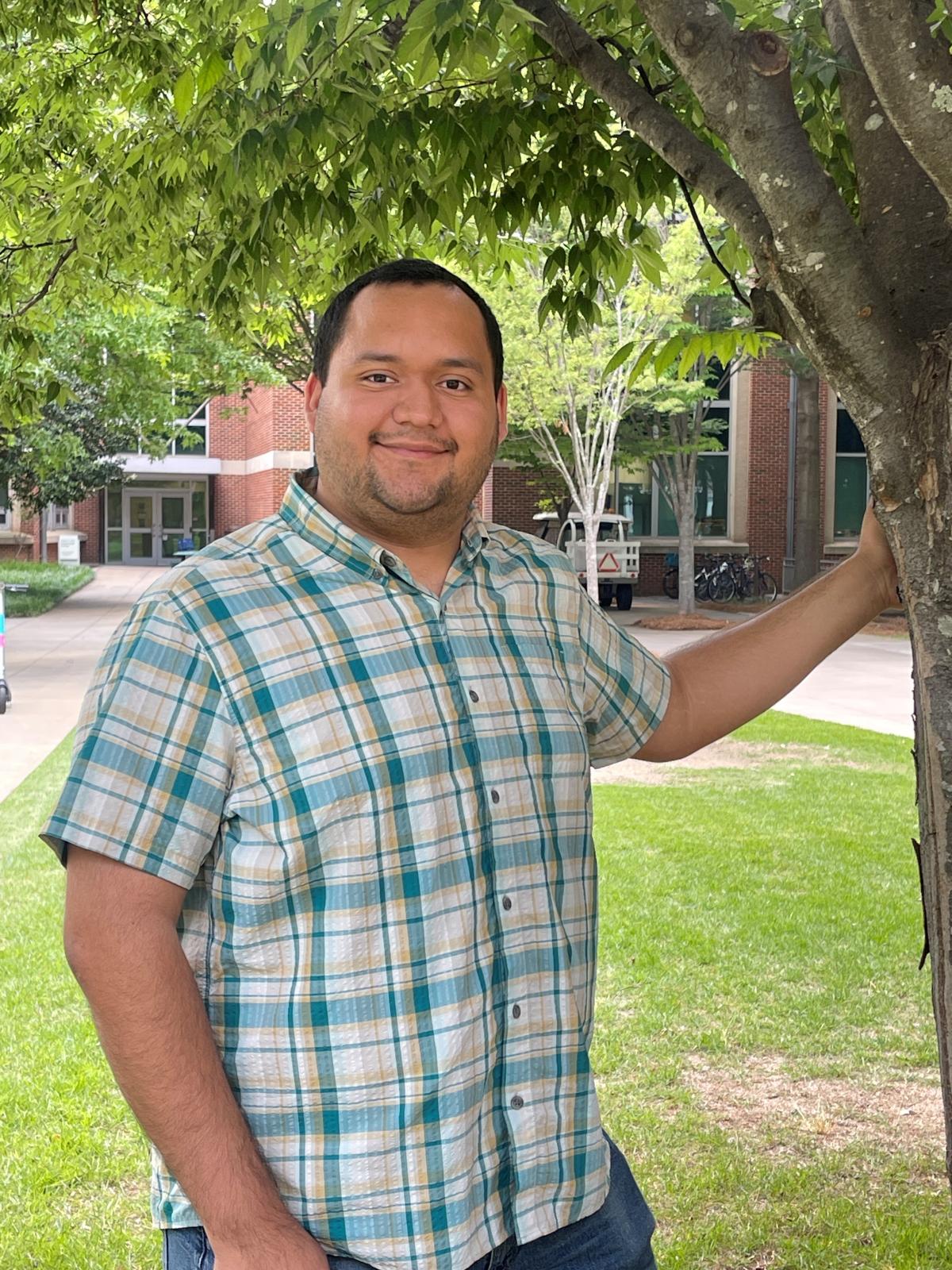
For years, Luis Cuevas dreamed of joining the U.S. Peace Corps, and after graduating from Georgia Tech with a BS in chemical engineering, he is set to finally volunteer with the organization as a math teacher in Tanzania.
His desire to serve communities in need stems from his childhood in Ciudad Juárez, Mexico, where he observed instances of poverty and lack of opportunities while growing up.
“My parents shielded me from the worst of it, but I never forgot,” he said. “Since then, I’ve always tried to give back, volunteering in food kitchens and helping out where I can. The Peace Corps felt like the next step – a way to serve in a place where the need is great.”
Cuevas’ family moved to El Paso, Texas, when Siemens transferred his father’s job as a procurement manager. Later, they settled in Cumming, Georgia, when he was in fifth grade. “It was tough leaving behind friends and family, but I learned how to adapt,” he said.
Transferring to Tech
His adaptable attitude served Cuevas well as he transferred from Georgia State University, where had been a chemistry major for three semesters, into Georgia Tech’s School of Chemical and Biomolecular Engineering (ChBE) for the spring 2021 semester. His aspiration to work in the battery and clean energy sector motivated the move.
“During that time, I opted for my first semester at Tech to be entirely virtual from my family’s home in Cumming while I was working at Walmart to help cover my expenses,” he recalled. “The rigor of Tech was unlike anything I’d experienced. It was daunting at first.”
But Georgia Tech’s services dedicated to helping transfer students approach the rigorous coursework and the collaborative mindset of the ChBE community helped him succeed.
“I’d expected that I might feel alone in a hypercompetitive environment, but the ChBE students really bond with one another,” Cuevas said. “We all work together, studying in groups, to get through a challenging major.”
Strong faculty support is also an essential contributor to ChBE students’ success, Cuevas said. He remembered a pep talk that Professor Julie Champion gave him during a rough early patch in her regular office hours.
“She doesn’t know the impact she had, but she pushed me forward, reminding me that I’m not the only one to go through this. And her encouragement helped me stay the course,” he said.
Research Experiences
At Georgia Tech, Cuevas immersed himself in research experiences. In summer 2023, he worked with Associate Professor Nian Liu in Georgia Tech’s VentureLab program, researching technologies for extracting lithium from brine for batteries. The program bridged the project’s technology with entrepreneurial opportunities, and Cuevas handled the customer discovery work to understand market needs.
He also collaborated with Professor Matthew Realff on modeling the use of small modular nuclear reactors to produce hydrogen for refineries, with the long-term goal of integrating biofuels. These research experiences broadened his understanding of the energy sector, he said.
Journey Ahead
Scheduled to arrive in Tanzania as a Peace Corps volunteer in September, Cuevas will take part in three months of assimilation training, including Swahili lessons and cultural orientation, before beginning his teaching assignment. In total, his service will span 27 months.
“I don’t know where exactly where I’ll be placed yet within Tanzania,” he said. “I will primarily teach math and possibly some science too. English is the main language for instruction, but I’m learning Swahili to bridge any language gaps and better connect with the community.”
Working as a chemistry tutor during his early college years at Georgia State ignited his passion for teaching.
“It really fills me with a lot of joy and satisfaction when I can help someone with a problem and grow their understanding of science and math,” he said. “I know I did a good job when they can begin working it out individually.”
Role Model
Cuevas strives to be a role model for others, especially in his family circle. “Now my little sister wants to attend Georgia Tech too,” he said.
While his future after the Peace Corps is open-ended, Cuevas is considering returning to the battery sector or pursuing a master’s degree with help from scholarships awarded to returned volunteers.
For now, he’s focused on the service ahead. “I might be living without water or electricity. But that’s part of the challenge—and the reward,” he said. “I want to make a difference.”
And one more goal: “If I have time, I’d love to climb Mount Kilimanjaro.”